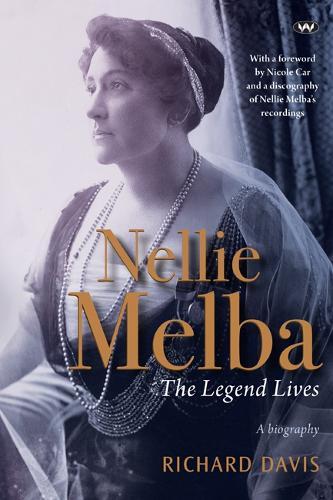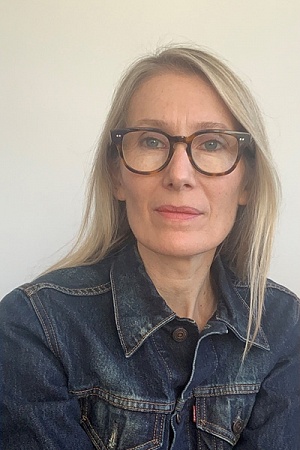Natural Wonder

In the stillness, after the fireworks, I stood for a while at the window. The bay below was crammed with the pretty lights of marine craft and it looked as though you could step from one boat to another, all the way across the harbour.
‘Why don’t I do that?’ I thought, and stayed there for some time, plotting my passage across the decks and bows.
The next day was New Year’s Day and I waited until quite late before taking the three kids down to a sheltered harbour beach. There was my son – Cosmo, aged eleven – and his cousins Ed, ten, and Elmo, nine. I watched as they swam, clambered over the rocks at one end and then the other, and marked out an imaginary ball game in the sand, miming moves and even arguing over the pretend rules and the pretend score. I had a headache and sat in the shade behind sunglasses watching a large white boat, just offshore, caught by a stubborn anchor. It throttled back and forth, motoring in circles. When the skipper left the cabin to peer over the side, the boat drifted towards the beach. He hurried back and the engine gurgled to life, but the boat floundered in circles again.
A man towelling himself off after his swim tried to strike up a conversation with me. Perhaps he thought I was alone. He reminded me that the beach is called Shark Beach – a name no one likes to use. A net strung from wooden pylons encloses the swimming area.
The kids don’t see their luck yet, spending summers like this. They don’t see privilege or ponder reasons. Maybe Ed, the older cousin does. I overheard him asking his father to explain the share market, and last night, with some solemnity, he asked me why time slows down when you travel into space and whether, if you went far enough and fast enough, it would be possible to go back in time. I’ve been pondering this myself ever since.
I was thinking about it again while watching their imaginary ball game and missed the moment when the snagged boat cut loose its anchor. I looked up as it motored off, a clump of seaweed swinging from the chain on the bow. It pulsed over the wake of another boat and evaporated in the setting sun.
I’m hoping the cousins will come to stay for a few days like this every school holidays, if I can work it out with their father and grandmother. I send a text a few weeks before the end of each school term: ‘Are the kids coming up?’
I know it’s not my problem and I shouldn’t take it on like a cause, but when they were smaller and I watched my son wrestle with them like cubs, I imagined all three were mine and felt a primal urge to protect them, even before anything happened.
Elmo bumped his head yesterday. Crumpling in tears, he ran to be comforted. I was just out of the shower and he pressed his face into the towel around me and I held him, standing awkwardly in the hall. I was about to say, ‘There, there, you’ll be okay,’ and pull away, but thought I’d just hold him until he let go by himself. But he didn’t let go.
‘Have a lie down on my bed,’ I said, so I could at least get dressed. Then I stroked his hair and patted his back until his tears dried and he got up and went to play with his brother and cousin again.
The older brother, Ed, lost a wiggly tooth on his first night here. He’s probably too old to believe in the tooth fairy, given he can grasp the theory of relativity, but I washed it and put it in a dish beside the bed and swapped it for a coin as he slept. I can never quite bring myself to throw away baby teeth so I put it in a little zip-lock bag – the tiny ones that drug dealers use. Not that I know any drug dealers. They say cocaine flows in the sewers around here. It makes a good story, but it’s not the only story. Some of us just don’t like to be too far from the sea.
I forgot about the tooth in the zip-lock bag and opened my desk drawer in front of Ed the next day and he saw it. He said nothing. There was no accusation, no ‘you told me the tooth fairy took it’. At what age do children start protecting adults? Even lying for them?
The boys don’t mention their mother. No one does, and it would be selfish of me to remind them just so I could comfort them.
‘Why don’t I do that?’ That’s what I thought when I heard. Not the first thought. First there was No. Followed by How – not how did she do it, but how could she. Now there is just Why. A question I don’t like to get too close to for fear of finding the answer.
I first met her when she was pregnant with Ed. She was very beautiful, prettily tattooed, enigmatic. She still looked like a child herself. I was a new mother and out of my depth, clutching my baby, frozen with anxiety. She spoke very little, so I asked all the questions in an incessant, insecure prattle.
When she moved back to the country, taking the kids with her, I didn’t ask or get involved. I tried not to speculate or gossip about the break up. Even her own mother refused to take sides: ‘There’s his story, her story and the truth,’ she said, with that country pragmatism. It can be refreshing when no one else is talking and questions hang in the air like a fog.
I called whenever we were passing through so that Cosmo could see his cousins. I have a photo of the last time. We met in the Memorial Gardens on a winter’s day. She was dressed in a long tweed coat with a black scarf, jeans and Converse sneakers, a vintage hand-tooled leather bag over her shoulder.
There was no clue.
The boys stayed for three days and on the last night it was stiflingly hot, so after dinner we went down to the harbour again to sit by the water. It was getting dark already, but they waded in the shallows and fenced on the sand with their toy lightsabers. They wanted to swim out to the pontoon but I said no. Cosmo says I take the fun out of everything, but I know they can’t resist a challenge and would dare each other to swim under it or dive down until they touched the slimy mud on the harbour floor – the same things I did at their age. I let them walk around the boardwalk instead. The tide was low, leaving a long drop to the harbour. Christmas king tides. There’s a railing on the harbour side, but not the pool side and I worried about Elmo – still not convinced he can swim properly. When I’d mentioned this to his father he looked bewildered. ‘Right,’ he said, considering the implications, like it was all a bit overwhelming for him, which it probably was.
Cosmo’s lightsaber flashed on and off as he swung it around. When I couldn’t see them on the far side of the boardwalk, I could still track the red light flashing occasionally. Their three black shadows disappeared, then reappeared as a Manly ferry, that hardy maritime vessel, passed in the distance behind them, framing their silhouettes in the blocks of gold light from its warm interior. They slowly made their way the length of the horseshoe boardwalk. When they got to the ramp on the sand at the other end, Elmo ran, shouting, ‘I dropped my lightsaber!’
Elmo’s lightsaber was blue and didn’t light up like Cosmo’s. Its telescopic plastic tubes collapsed into a hollow handle and I imagined it had sunk straight to the bottom.
‘Did you drop it in the pool, or outside, in the harbour?’ I asked.
‘Outside!’ he said, his voice a husky baby-animal growl.
‘Mum gave it to him,’ said Ed.
We walked across the beach back to the boardwalk. The sand was soft and starting to cool, the boards on the deck felt dry under foot and worn smooth.
‘There it is,’ said Cosmo, racing ahead.
The four of us leant over the railing to see the toy, a plastic crucifix floating majestically, shimmying and swaying on the rippled mirror, halfway between us and a clinking moored yacht.
I considered swimming out to get it, but the spectre of the man with the towel whispered ‘Shark Beach, Shark Beach’. I looked for an oar or for some movement, someone out there on the water to help. Up on the sand, under the Moreton Bay figs, there were a dozen dinghies and kayaks, all padlocked to the fence or to each other. Useless.
We watched the toy drift further away and I told Elmo we’d come back and look for it in the morning. I explained there was a chance it would wash up on shore, if the tide came in and the southerly held off. It sounded like a hollow promise and I don’t think he believed me. But he accepted it like he was used to hollow promises, to being kept in the dark.
By dawn the next day, there’d been no change in the weather, not even a breeze, so I was hopeful. It was worth looking, at least. But first I had to pick up the boys’ grandmother from the station. I left them sleeping, flung across the sheets. She’d spent all night on the train to come and take them home. I lifted her small suitcase into the boot and we drove back through the still, almost deserted streets. It would have been a good time to ask her how she was, but I made small talk instead. I’d written to her when it happened but she’d never mentioned my letter. Only immediate family were allowed at the funeral. Her daughter’s friends had to pay their respects in a separate gathering in the park. If she’d died any other way it would have been a public tragedy, not a private one.
The boys greeted their grandmother with hugs. I turned the portable fan up high, plumped the pillows on the couch and made her a cup of tea, then said to Elmo, ‘Shall we go see if we can find your lightsaber?’
The sun was high now. It was searingly hot and the beach was crowded. We walked the length of the boardwalk and scoured the water’s edge back on shore. Elmo’s small feet stamped perfect footprints into the sand ahead. When he stopped to look back and make sure I was still there, I glimpsed his mother’s face under the peak of his cap, with its splash of freckles and thick black eyelashes.
We walked all the way to where the sand ended in oyster-covered rocks at the foot of the sea wall, and searched the crevices and shallows until the beating sun wore us down and it was hard to find an excuse to continue. I’d kept my promise to him, and I could see he’d accepted his loss, so we made our way back.
As soon as we stopped looking it appeared. We were climbing the concrete stairs to the carpark. I glanced to the right and there it was, lying on the grass, found and then discarded by another child.
‘Elmo,’ I said, ‘Is that it?’
His eyes widened. I hardly believed it myself. Only the tide can bring things back.
It was clogged with sand and grit but once we were back home I flushed it under the tap in the bath, as if it were Excalibur and the Lady of the Lake had risen in a halo of phosphorescence from the dark harbour to return it. When the moving parts worked again, I collapsed it down and packed it into his suitcase.
In the lounge room, I heard Ed asking his grandmother the same question he’d asked me about space travel and whether you could go back in time.
‘Well it’s natural to wonder about these things,’ she said, ‘But even if you could go back, I don’t know if you could change anything.’
It was just Cosmo and I again that evening and it was quiet. When he’d gone to sleep I turned off the lights in the lounge room and stood at the window. The boats had all gone from the bay. There was no twinkling raft left to cross.













Comments (5)
Congratulations Tracy. Looking forward to more of your writing.
Tammy (from ye olde VCA days)
Leave a comment
If you are an ABR subscriber, you will need to sign in to post a comment.
If you have forgotten your sign in details, or if you receive an error message when trying to submit your comment, please email your comment (and the name of the article to which it relates) to ABR Comments. We will review your comment and, subject to approval, we will post it under your name.
Please note that all comments must be approved by ABR and comply with our Terms & Conditions.